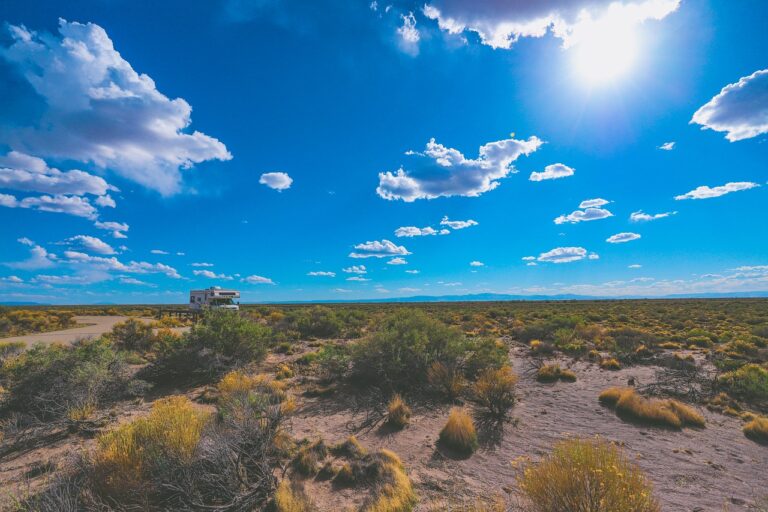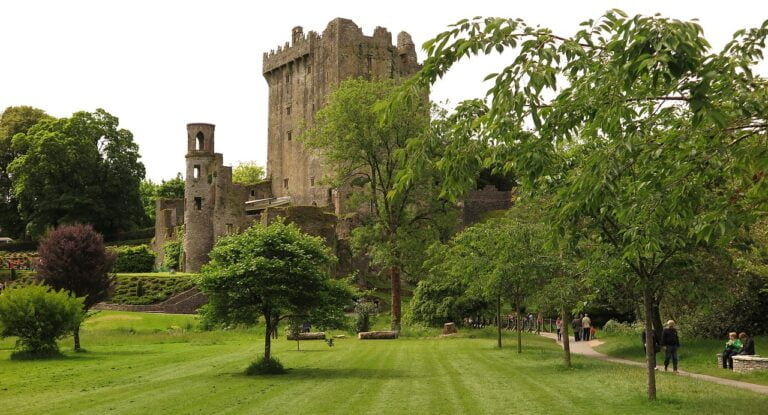Are Bedouins Smart?
Bedouins exhibit a unique, adaptive intelligence shaped by their ancient connection to the desert environment. They've developed exceptional survival skills, innovative problem-solving strategies, and a rich cultural heritage that defies stereotypical notions of intelligence. Their ability to navigate the vast desert expanse, conserve water, and thrive in extreme conditions is a demonstration of their ingenuity and resourcefulness. By reevaluating traditional notions of intelligence, we can gain a deeper appreciation for the Bedouins' profound understanding of the natural world and their remarkable capacity for critical thinking and community cooperation. There's more to uncover about the intricacies of Bedouin culture and society.
Debunking Stereotypes and Misconceptions
Numerous misconceptions and stereotypes have long plagued the global perception of Bedouins, perpetuating a distorted image of a people often misunderstood and misrepresented. One common myth is that Bedouins are uneducated and illiterate, when in fact, many possess a rich oral tradition and are skilled storytellers. Another misconception is that they are nomadic wanderers, lacking a sense of community and social organization. In reality, Bedouins have a strong tribal structure and a deep connection to their ancestral lands. By challenging these stereotypes, we can gain a more nuanced understanding of Bedouin culture and society. To separate fact from fiction, acknowledging the diversity and complexity of this ancient and resilient people is crucial.
Adaptation to the Desert Environment
In the harsh desert landscape, Bedouins have honed a unique set of skills and strategies that enable them to not only survive but thrive in one of the most inhospitable environments on Earth. They have developed an intimate understanding of the desert's rhythms and patterns, allowing them to locate scarce water sources, identify edible plants, and navigate treacherous terrain. Their traditional clothing, designed to protect them from the scorching sun and freezing nights, is a reflection of their resourcefulness. Furthermore, Bedouins have developed innovative solutions to conserve water, harnessing every precious drop to sustain life in this arid landscape. By adapting to the desert's unforgiving conditions, Bedouins have demonstrated a profound intelligence, one that is deeply rooted in their connection to the natural world. Additionally, their ability to survive in such a harsh environment is a badge of honor, showcasing their ingenuity and resilience.
Beyond the reaches of modern cartography, Bedouins have developed an uncanny ability to navigate the vast expanses of desert terrain, relying on a complex mental map that is etched from generations of traversing the dunes. This innate sense of direction is rooted in their deep understanding of the desert's rhythms and patterns. To navigate, Bedouins employ a range of strategies, including:
- Reading the position of the sun and stars
- Identifying constellations and their relationships to specific landmarks
- Recognizing subtle changes in terrain, such as the orientation of dunes and rock formations
- Using wind direction and scent to detect oases and water sources
- Employing a keen sense of spatial memory to recall routes and waypoints
Problem-Solving and Critical Thinking
Bedouins' exceptional problem-solving skills, honed through generations of adapting to the harsh desert environment, enable them to tackle complex challenges with a unique blend of creativity, logic, and intuition. Their ability to think on their feet and outside the box has been vital to their survival in the unforgiving desert landscape. They can improvisise shelter, find water, and navigate treacherous terrain with ease. This adaptability is also reflected in their ability to repair and maintain equipment, often using makeshift tools and materials. Their resourcefulness is a demonstration of their intelligence and ability to think critically, often under pressure. This innate problem-solving ability has allowed them to thrive in one of the world's most inhospitable environments.
Social Structure and Community Dynamics
Rigorously organized and remarkably resilient, the traditional Bedouin social structure is a tribute to the tribe's ability to foster cooperation and collective survival in the harsh desert environment. This intricate system has been perfected over centuries, allowing Bedouins to thrive in one of the world's most inhospitable regions. At the heart of this structure lies a complex web of relationships, alliances, and hierarchies.
- The tribe is typically divided into smaller units, each with its own leader and decision-making processes.
- These units are often linked through marriage, kinship, or shared resources.
- A council of elders, known as the majlis, serves as a governing body, mediating disputes and making collective decisions.
- The Bedouin concept of "asabiyya" emphasizes group solidarity and loyalty, ensuring the tribe's survival in the face of external threats.
- This social framework has enabled Bedouins to adapt and respond to the challenges of their environment, demonstrating their remarkable resourcefulness and intelligence.
Cultural Practices and Traditions
In the vast expanse of the desert, where survival hinges on adaptability and creativity, the Bedouins have cultivated a rich tapestry of cultural practices and traditions that reflect their profound connection with the land and its rhythms. Their nomadic lifestyle has given rise to unique customs, such as the importance of hospitality, where guests are welcomed with open arms and generous provisions. The Bedouins' deep understanding of the desert environment is also reflected in their traditional practices, such as the use of astronomy to navigate the vast dunes. Their cultural heritage is a tribute to their resourcefulness and ability to thrive in one of the harshest environments on earth.
Education and Knowledge Transmission
In the realm of education and knowledge transmission, Bedouins have developed unique methods that have enabled them to thrive in the harsh desert environment. Traditional learning methods, passed down through generations, focus on practical skills and oral storytelling, allowing them to preserve their history and cultural heritage. By examining these approaches, we can gain a deeper understanding of the Bedouins' remarkable ability to adapt and survive in one of the world's most inhospitable landscapes.
Traditional Learning Methods
Bedouin tribes have long relied on oral traditions and experiential learning, where elders impart essential survival skills and ancestral knowledge to younger generations through storytelling, demonstrations, and hands-on practice. This traditional approach fosters a deep understanding of the desert environment, allowing the Bedouins to thrive in harsh conditions.
- Skill-based learning: Bedouins learn by doing, mastering essential skills such as camel herding, hunting, and navigation.
- Community-based education: Elders share their expertise with the entire tribe, promoting a sense of community and shared knowledge.
- Practical problem-solving: Bedouins develop critical thinking skills by facing real-world challenges in the desert.
- Respect for tradition: Oral traditions and experiential learning preserve ancestral knowledge and cultural heritage.
- Holistic education: Bedouin learning encompasses physical, emotional, and spiritual development.
Oral History Preservation
Through generations of verbal storytelling, the Bedouins have carefully preserved their rich cultural heritage, passing down tales of ancestors' bravery, traditional practices, and historical events that have shaped their identity. This oral tradition has enabled them to maintain a deep understanding of their history, fostering a strong sense of community and shared values. Elders, revered for their wisdom, play a crucial role in sharing these stories, ensuring the continuation of their cultural legacy. The Bedouins' remarkable ability to recall and retell complex narratives has allowed them to safeguard their collective memory, providing a unique window into their past. This remarkable feat of oral history preservation is a tribute to their intelligence and resourcefulness.
Desert Survival Skills
The harsh desert environment has necessitated the development of innovative survival skills, which are meticulously taught by experienced elders to younger generations, ensuring the tribe's continued existence in one of the world's most inhospitable regions. This knowledge transmission is vital for the Bedouins' adaptation to the unforgiving desert landscape. The elders impart their expertise in traversing the dunes, finding oases, and predicting weather patterns, allowing the tribe to thrive in this harsh environment.
- Identifying and purifying water sources
- Recognizing and treating desert illnesses
- Building shelter from natural materials
- Hunting and preparing desert game
- Charting a course using celestial bodies and natural landmarks
Reevaluating Intelligence and Wisdom
As we venture into the domain of reevaluating intelligence and wisdom, it becomes essential to challenge conventional notions of cognitive abilities. The Bedouins' unique desert environment has fostered a distinct brand of intelligence, shaped by the harsh conditions and scarcity of resources. By examining the intricacies of desert adaptation, we can uncover a more nuanced understanding of intelligence, one that moves beyond traditional measures of intelligence quotient (IQ).
Rethinking Traditional Notions
Rethinking traditional notions of intelligence and wisdom, we must venture beyond conventional frameworks that have long dominated our understanding of human cognition. The narrow focus on cognitive abilities, such as memory and problem-solving, has led to a limited view of what constitutes intelligence. To gain a more comprehensive understanding, we must consider the diverse ways in which humans adapt, innovate, and thrive in various environments.
- Contextual understanding: Recognizing that intelligence is deeply rooted in cultural and environmental contexts.
- Practical wisdom: Valuing experiential knowledge and skills acquired through hands-on experience.
- Social intelligence: Acknowledging the importance of cooperation, empathy, and communication in human success.
- Emotional intelligence: Understanding the role of emotions in decision-making and relationships.
- Narrative intelligence: Considering the significance of storytelling and oral traditions in preserving cultural heritage.
Understanding Desert Adaptation
How do the Bedouins' remarkable adaptations to the harsh desert environment – from charting by starlight to conserving water – exemplify a unique brand of intelligence that has allowed them to thrive in one of the most inhospitable regions on Earth? Their ability to navigate the vast expanse of sand dunes using celestial navigation, for instance, demonstrates an innate understanding of astronomy and spatial awareness. Additionally, their expertise in finding and conserving water sources, often relying on subtle signs and ancient knowledge, showcases a profound appreciation for the delicate balance of life in the desert. Furthermore, these adaptations not only testify to the Bedouins' resourcefulness but also underscore their ingenuity in the face of extreme adversity, redefining our traditional notions of intelligence and wisdom.


